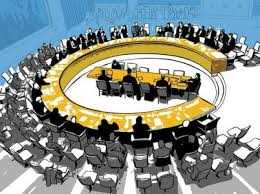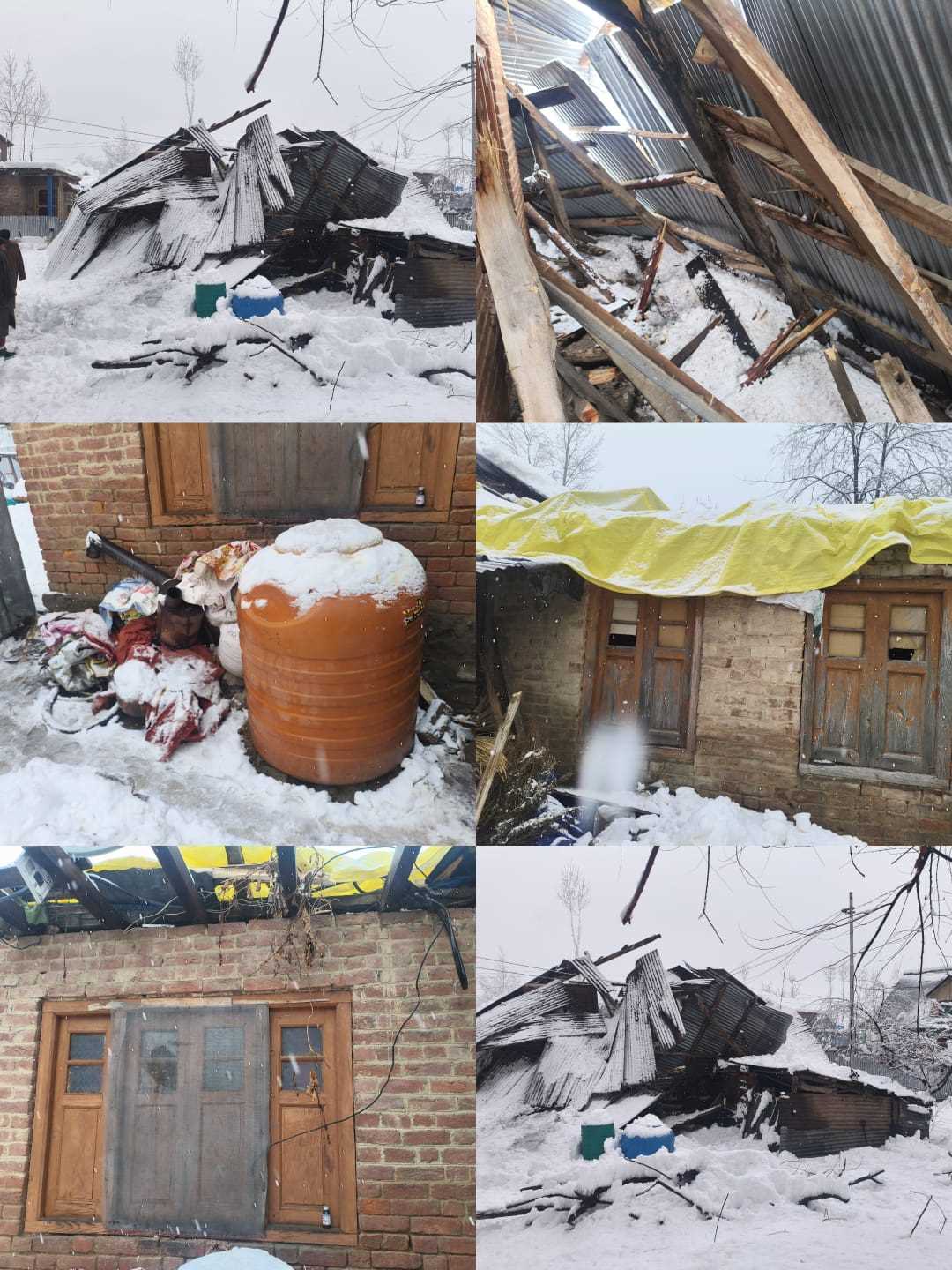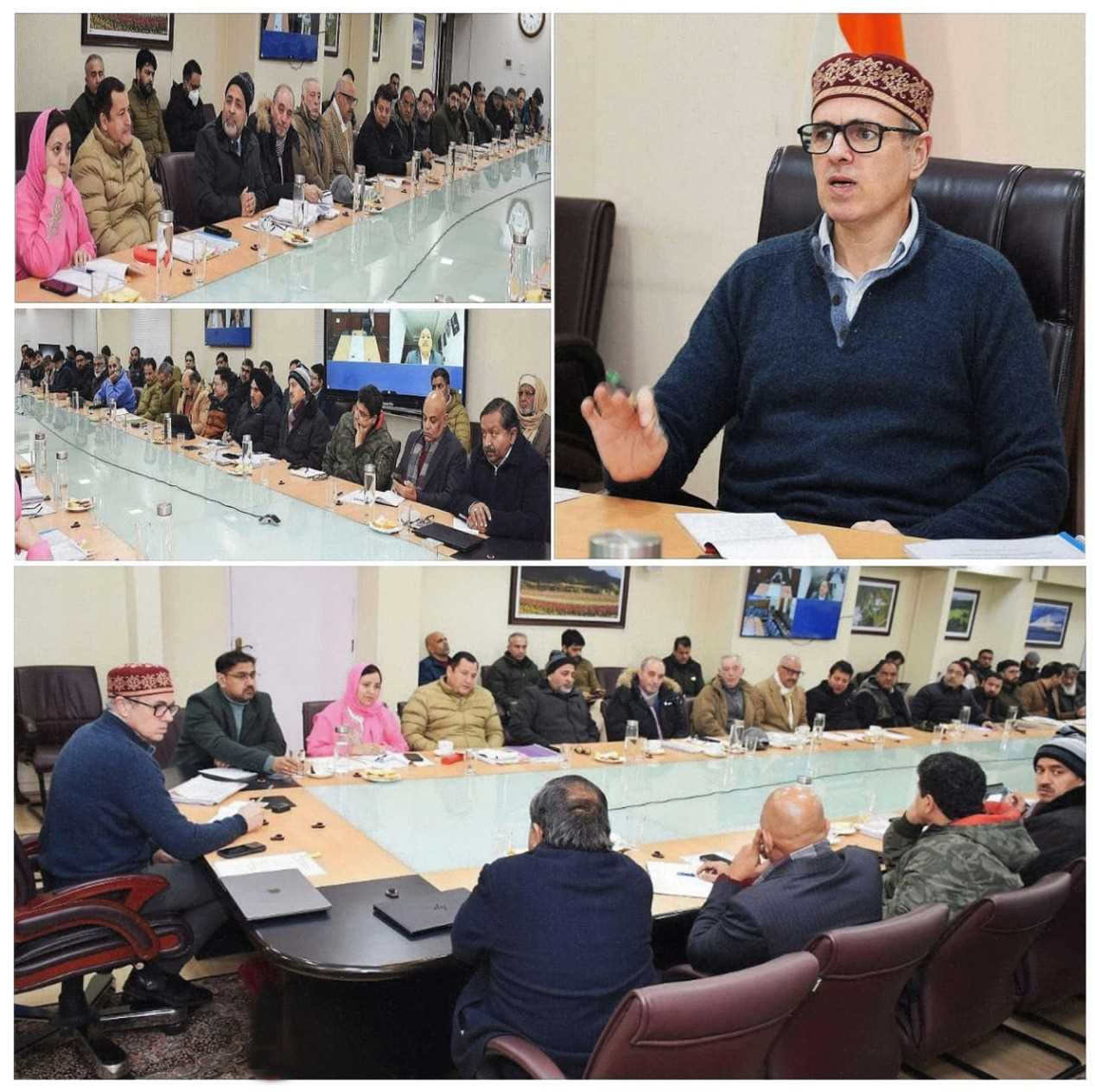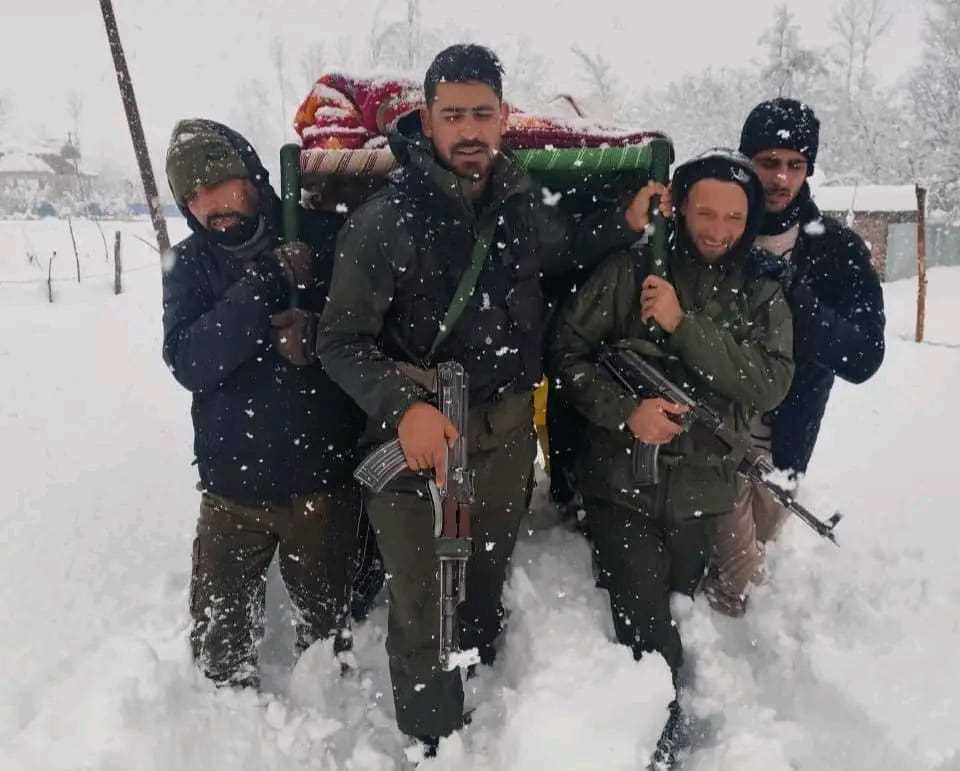The world will be celebrating United Nations day on 24th October 2025-the day it was established on in order to stop violence and restore peace after World War-II in 1945.The watching world is just looking forward for some steps to be taken on part of UNO in order that peace is restored in world in the context of world level conflicts like Israel-Palestine, Russia-Ukraine, Pakistan- Afghanistan, Iran-Israel and Indo-Pak, Sudan Civil War and many more. Ironically, the specific theme for United Nations Day 2025 is not yet announced, but it will likely focus on global unity and the UN's 80th anniversary, promoting themes of peace, sustainability, and international cooperation. This year's observance will also be influenced by the 2025 theme for the International Day of Peace, which is "Act Now for a Peaceful World". But the most tragic thing being that, in realistic sense, peace is existing nowhere in the world. The matter of concern is how far UNO has succeeded playing its role as a peace keeping and development promoting agency. If this apex body was established with the purpose of promoting peace and safeguarding humanity then why it has not yielded any results in this regards. One of the Indian Ex-Foreign Services Officers while conducting a mock-interview for civil services has rightly said when something becomes too old and irrelevant, except for our parents and grandparents, we throw it away. Same analogy can be drawn in respect of UNOs out datedness and irrelevance in current times when half of the world is laden with atomic and nuclear power. Let’s read a report published by vision of Humanity:
Recent studies on global conflict zones reveal that the world is facing 56 active conflicts, marking the highest level of violence since World War II. These wars have also become increasingly internationalized, with 92 nations now engaged in conflicts beyond their own borders—the largest number since the creation of the Global Peace Index (GPI).The rise in small-scale conflicts has raised concerns about the potential escalation into major wars. For instance, countries like Ethiopia, Ukraine, and Gaza, which were considered minor conflict zones in 2019, have now become major centers of warfare. In 2023, global conflicts caused around 162,000 deaths, the second-highest total in three decades. The Ukraine and Gaza wars alone were responsible for nearly 75% of all casualties, with Ukraine recording 83,000 deaths and Palestine an estimated 33,000 by April 2024. During the first four months of 2024, about 47,000 people lost their lives in conflicts worldwide. If this rate continues, 2024 may witness the highest death toll since the 1994 Rwandan genocide. The economic cost of violence in 2023 reached $19.1 trillion, which equals $2,380 per person or 13.5% of global GDP. This marks an increase of $158 billion compared to the previous year, largely due to a 20% rise in GDP losses from conflict. Meanwhile, spending on peace building and peacekeeping totaled just $49.6 billion, accounting for less than 0.6% of global military expenditure. Peacefulness around the world has declined sharply—97 countries recorded deterioration, the worst annual drop since the GPI began in 2008. The conflicts in Ukraine and Gaza were the main contributors to this global decline. Additionally, 108 countries became more militarized, the steepest rise since GPI records started. Today, more than 110 million people are refugees or internally displaced due to violent conflicts and 16 countries each host over half a million refugees. North America experienced the largest regional decline in peace, fueled by increases in violent crime and fear of violence. A new military capability index suggests that the United States possesses up to three times more military power than China. Overall, the findings highlight the growing human, political, and economic toll of global conflicts and the widening gap between military spending and peace building efforts. (Source: Vision of Humanity – Global Peace Index 2024)
Leaving aside the kinetic conflicts wherein the opponent countries shoot at each other, 90% of rest of the world is involved in interior / exterior conflicts, Civil wars, communal clashes etc. We can’t understand what the role of UNO in such a situation is when UNO is not in a position to regulate socio-political, ecological and economic crisis. In my opinion - based on my experience and deep study on global geo-political scenario in current times- UNO has been playing the role of facilitator for those countries that have been its permanent members and veto powers like China, Russia, UK, USA, France, Germany etc. the complete discourse of UNO is being run on national/ racial/ communal pride and prejudice. Veto powers are only the Non-Muslim countries where either Jews or Christians have control over the state politics. So whatever rises out of their interest, becomes the law for rest of the world.
An article “Changing Role of UNO in Contemporary World by Mohammad Yaseen Mir-Department of Political Science, University of Kashmir in The Academic Volume 2 | Issue 5 | May 2024, the author mentions :On October 24, 1945, the United Nation's was founded. It has been the focal point of international administration since World War II. Its purpose includes the widest number of issues related to governance and it is the only highly global and universal intergovernmental institution established to date with a virtually universal membership and a worldwide scope. It came into existence with 51 countries. There are now 193 member states in the organization. The UN is still the only international institution and player on a global scale with a program covering the widest variety of governance-relate topics. The (UN), being sole truly world-wide organization, has become the primary forum for addressing issues that transcend national boundaries and cannot be resolved by a single country acting independently. With the UN General Assembly at its centre, it is a sophisticated system that acts as the focal point for international diplomacy. Every year, at the beginning of the General Assembly session in September, a three-week long general debate attracts heads of state and foreign ministers from both big and small states, who seize the chance to address the world's nations and engage in active politicking.
The UN was once referred to as a "stage set for an ongoing dramatization of world history" by Conor Cruise O'Brien, a Special Secretary of the UN Secretary-General (1968). "The UN is frequently viewed as solely a 'arena' in which nation-states can present their opinions and ideas in a free and open forum,"says Clive Archer, who may provide a better explanation of this metaphorical approach. UN for a functions as a "arena" for Member States, observers, and non-governmental organizations to express their views and lay out their agendas (1983).The UN System's ability to change and grow in order to meet the challenges that the world's peoples face is a critical factor in its future. Naturally, this flexibility is only achievable when UN members collaborate to revive the UN System. Let us now discuss the report that was distributed on December 2, 2004, by the High-Level Panel, which was composed of sixteen distinguished individuals nominated by the UN Secretary-General. The UN has seven significant flaws, according to this assessment, including:
1. The General Assembly has becoming less active.
2. In the future, the Security Council must take the initiative.
3. A significant institutional deficit exists when it comes to helping stressed-out and post-conflict nations. 4. The Security Council hasn't fully tapped into the benefits of collaborating with sub-regional and regional bodies.
5. New institutional frameworks are required to handle the social and economic risks to global security. The Secretariat needs to be more structured and professional.”
Significant efforts have been made in the past few years to rectify these shortcomings, reinvigorate the United Nations, combat injustice and inequality, combat international terrorism and criminality, and safeguard the environment worldwide. It should be emphasized that the 2005 World Summit Goal ,The General Assembly resolution 60/1, and the recommendations in the Report of the High-Level Panel were developed over several months of discussions and deliberations, incorporating the viewpoints of global leaders, academics, and concerned individuals. The UN might not be capable to fulfill the rigorous goals it faces in serving humanity if it doesn't go through a comprehensive overhaul. The ideas and recommendations in this unit aim to improve the UN's effectiveness in resolving contemporary international issues, such as the Security Council's reform and reinstatement of its place in international affairs. The proposed change aims to fortify the decision making process, establish multilateral agreements, enhance the United Nations' capacity for collective action, and prevent unilateral impulses to employ force without authorization from the Security Council. We believe that two changes to the UN Charter that honor Article 3 are particularly important: expanding the Security Council and significantly limiting the veto power. Furthermore, the States ‘involvement in UN activities and the political shifts that have occurred since World War II ought to be represented in the Security Council's membership. It would be essential and reasonable to add one State from each of Africa, Asia, and Latin America, as well as Japan and Germany, to the Council's permanent seat count.
Concluding let me put down that there are two connotations in respect of UNO’s relevance or irrelevance ie; if the said body is set aright and all the nations are given a due participation in decision making, it may have be relevant in the current scenario because such a step will not let the powerful nations to take unilateral decisions like imposing bans on Muslim countries or the countries that support them in genuine causes. And it may not be relevant anymore in case the same structure of UNO remains in vogue. The current scenario shows that UNO is controlled by a few countries and others are just mute spectators as they don’t even have a permanent membership. How can such body be relevant when the whole world is involved in conflicts and the decisions are just done on the pretext of own interests by Veto countries. SO, we can say that UNO has lost its concurrence hence it require a major reformations or needs to be closed and replaced by such a body that covers the whole worked and especially humanity. Otherwise the day is far when UNO herself will seek justice form the hegemony of Israel and USA and will be denied.
Email:--------------------------ishaq7007@gmail.com








